We hope everyone is safe and well, and with the state of the world, we wanted to let you know where we stand since our last post. Unfortunately, as the global COVID-19 pandemic spread across the world, our planned documentary filming trip to France was cancelled. Concurrently, in New York, Pace University, like all other universities in the greater New York City area decided to temporarily close its campuses and move to remote learning. While we were disappointed about the trip being cancelled, we were determined as filmmakers to finish the documentary project that we all had already put so much hard work into. At our last in-person class on March 10th, Dr. Luskay let us know that we were switching to Plan B(ee). She broke up the crews into geographic groups to film local beekeepers – New York, New Jersey, New England and Pennsylvania. In preparation for this switch, a backpack of equipment was distributed to each group to film beekeepers in their geographic region.
Each backpack was already equipped with a camera, mics, all the necessary cords and cables, and a tripod in preparation for France. One addition to each bag was disinfectant wipes and sanitizer to keep our crew and interviewees safe. With only a few days before we were supposed to start filming in France, we had to switch gears and find an entirely new group of beekeepers to interview. We immediately started researching and reaching out to as many local beekeepers as we could. Our plan was to spend the next week, which would have been our spring break in France, interviewing local beekeepers instead. And for the first few days, all of our groups made great progress interviewing beekeepers in their areas and learning as much about local bees as we could.
Pictures of New England Production Team
Sadly, as days passed by, the situation with COVID-19 worsened and the order was given to place our region under quarantine and curfew. Our filming stopped immediately. All scheduled interviews had to be cancelled or postponed until further notice. Even our premiere, scheduled for May 11 at Jacob Burns Film Center in Pleasantville, NY was postponed indefinitely.
Now under quarantine in our own individual homes, we had to switch gears and regroup to figure out how we could make the most of the footage we had already accumulated. Luckily, we were already on line with the help of the app Slack. With Slack we were able to easily connect with each other.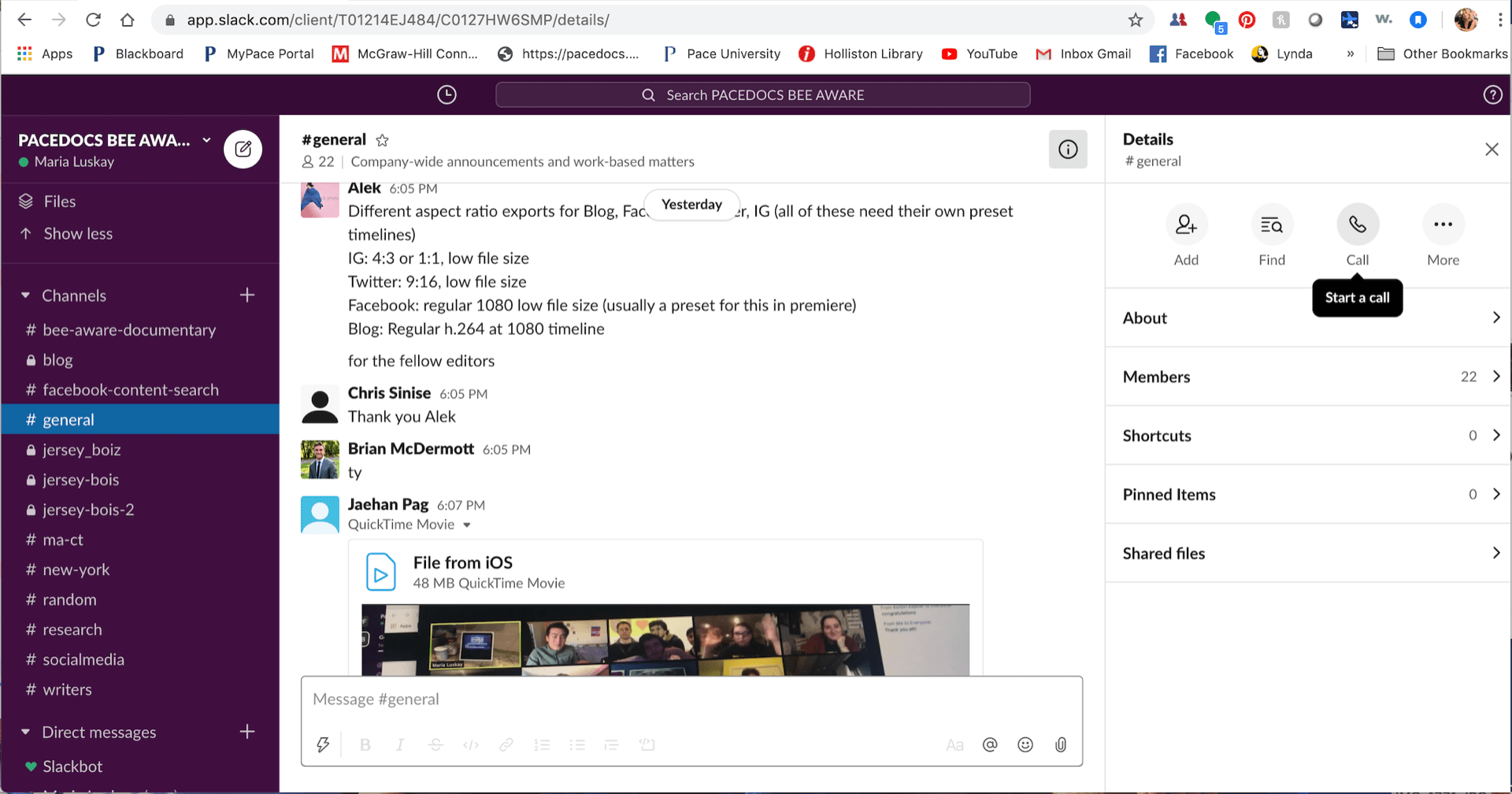 While hoping and waiting for news on when we could continue filming, the class met on the video conferencing platform, Zoom. For our first on line class meeting, Dr. Luskay taught us about how to edit and produce documentaries remotely. Our first step was to get all of our footage on one shared server – Sharepoint – so we all could access it. Ironically, we were supposed to be testing Sharepoint for the first time in France, and now we actually had to rely on it. We uploaded our interview footage in Temi so we could have a written transcript of each interview and begin putting together a story. Based on the footage we had collected so far, Dr. Luskay taught us how to divide the story into three acts on the paper edit, just as we would have done if we were still meeting in-person on campus. We all began digging into the interview transcripts and pulling sound bytes to add to the paper edit. These bytes turned into strings and our story was finally coming together. Our editors took the paper strings to create building out the timelines. Fortunately for us, due to the ongoing quarantine, Adobe Creative Suites allowed students to download and use their software for free. Each group’s editors could now begin putting their regional stories together using Adobe Premiere, and with the help of an app called Discord, everybody in the group could follow along with the editor through live streaming on their computer. As each group assembled their clips into each act, we began sitting in on each other’s groups editing sessions. This allowed us to understand where each sound byte would fit into the whole story and to see what the other groups filmed.
While hoping and waiting for news on when we could continue filming, the class met on the video conferencing platform, Zoom. For our first on line class meeting, Dr. Luskay taught us about how to edit and produce documentaries remotely. Our first step was to get all of our footage on one shared server – Sharepoint – so we all could access it. Ironically, we were supposed to be testing Sharepoint for the first time in France, and now we actually had to rely on it. We uploaded our interview footage in Temi so we could have a written transcript of each interview and begin putting together a story. Based on the footage we had collected so far, Dr. Luskay taught us how to divide the story into three acts on the paper edit, just as we would have done if we were still meeting in-person on campus. We all began digging into the interview transcripts and pulling sound bytes to add to the paper edit. These bytes turned into strings and our story was finally coming together. Our editors took the paper strings to create building out the timelines. Fortunately for us, due to the ongoing quarantine, Adobe Creative Suites allowed students to download and use their software for free. Each group’s editors could now begin putting their regional stories together using Adobe Premiere, and with the help of an app called Discord, everybody in the group could follow along with the editor through live streaming on their computer. As each group assembled their clips into each act, we began sitting in on each other’s groups editing sessions. This allowed us to understand where each sound byte would fit into the whole story and to see what the other groups filmed.
Pictures of Pennsylvania Production Team
In our next group Zoom meeting, Dr. Luskay taught us about how to fit the b-roll we had collected into the story. And after watching each group’s timelines thus far, our next assignment was to clean up the footage and fit in the b-roll. At the same time, the weather started getting warmer and the bees became more active, as did our beekeepers on social media. We began seeing more and more videos of beekeepers filming their bees in the various beekeeping groups we joined as a class on social media. We needed to collect more b-roll, and in quarantine that meant asking beekeepers to do it for us. We drafted messages to send out to all of our local beekeepers asking them to capture high quality videos. We also taught them how to record these 4K videos on their Iphones or Androids. So, they taught us about their bees, and we taught them how to film them.
Pictures of New Jersey Production Team
With the help of the generous beekeepers we contacted, we were able to accumulate essential footage to add to our project. And added to the b-roll we collected and shot ourselves, we were able to get a rough cut together from each group. And to say the least, we are very excited about what we have. We now know that we have a complete story to tell.
Last Night’s Dance Party Celebration
During this time, the COVID-19 situation in the greater New York City area is starting to show some signs of improvement. As the new hospitalization rates start to slow down, flatten, and decline, we have decided as a group to start thinking about our next steps. Now was the time to begin reaching out to the contacts we made before the quarantine and plan for resuming production once the quarantine is lifted. The Pace semester may end on May 16, but our documentary class will continue.
Pictures of New York Production Team
After seeing our first rough cut of the documentary, we were pleasantly surprised how much we were able to put together with what limited time we were able to shoot. Each group has a full three acts with a coherent story and beautiful b-roll. From this experience, we learned to be flexible producers who could overcome unseen obstacles and adjust themselves in uncertain circumstances. The fact that we were able to adjust to this unexpected situation was a great inspiration to the class. Apparently, we couldn’t be together in person, but it didn’t stop us from working. And as Dr. Luskay told us, we have learned an invaluable lesson on what it’s like to be a real producer on a real production – revising our plan every day, being flexible, working as a team, and NEVER giving up. This is one positive outcome from this crazy situation.
Our Editing Session on Discord
As we push forward in this new normal, we continue to look ahead to a brighter future. Our renewed post-quarantine plans include: continuing filming more interviews in June and July; restarting our social media activity; and planning a new premiere for the Fall. We have remained optimistic through so much uncertainty and cannot wait to be able to reveal our hard work to the world! We are ALL committed to finishing this project to the end and have managed to pursue it so far. Please enjoy some sneak peeks from each group:
Do you or someone you know keep bees? We want to hear your story! Pace University’s Pace Docs crew is in the process of producing a documentary about Beekeeping, the latest in a series of award-winning environmentally and culturally relevant documentaries from our department. Contact us at paceudocs@gmail.com. And follow us on Instagram, Facebook, Twitter, and Tik Tok for more content!
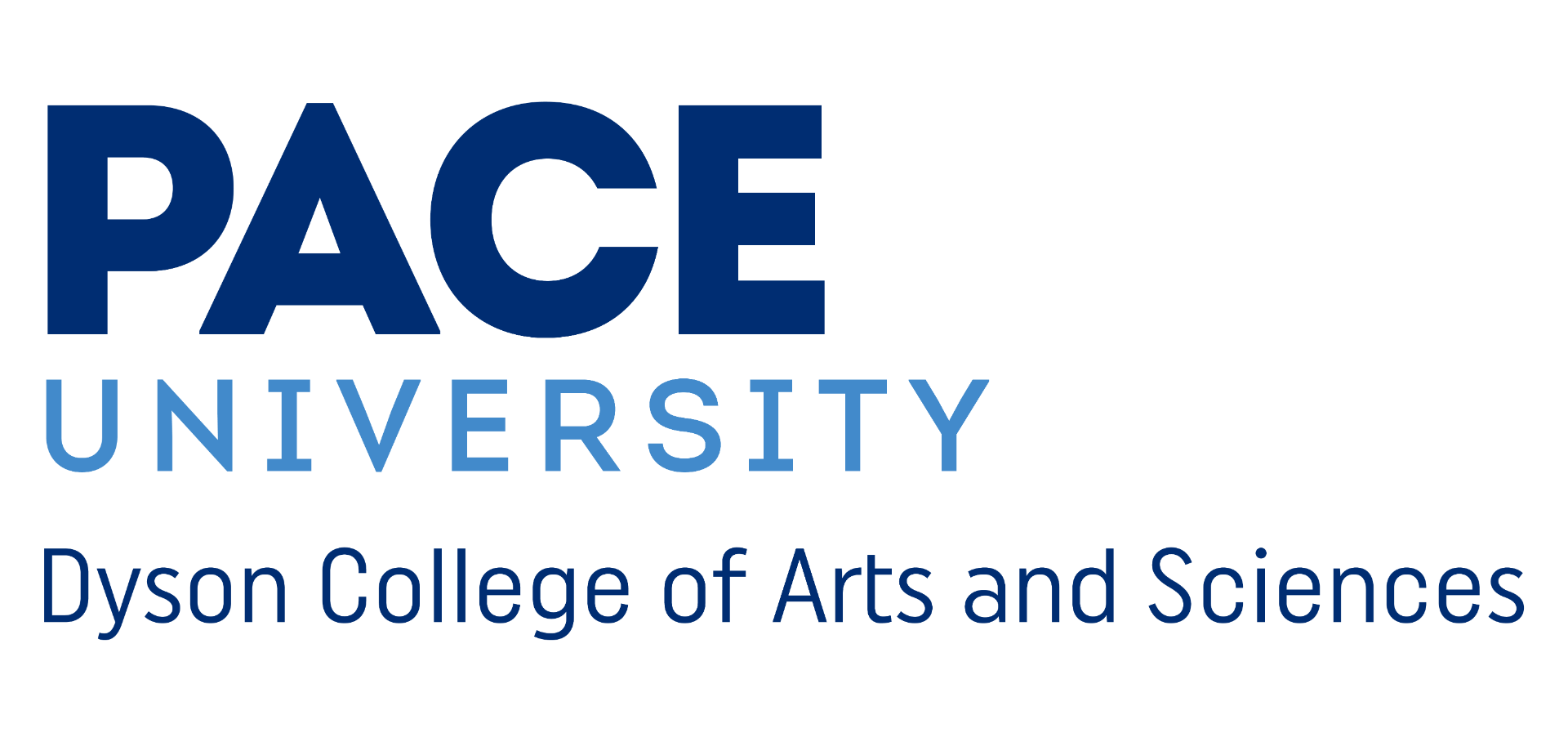
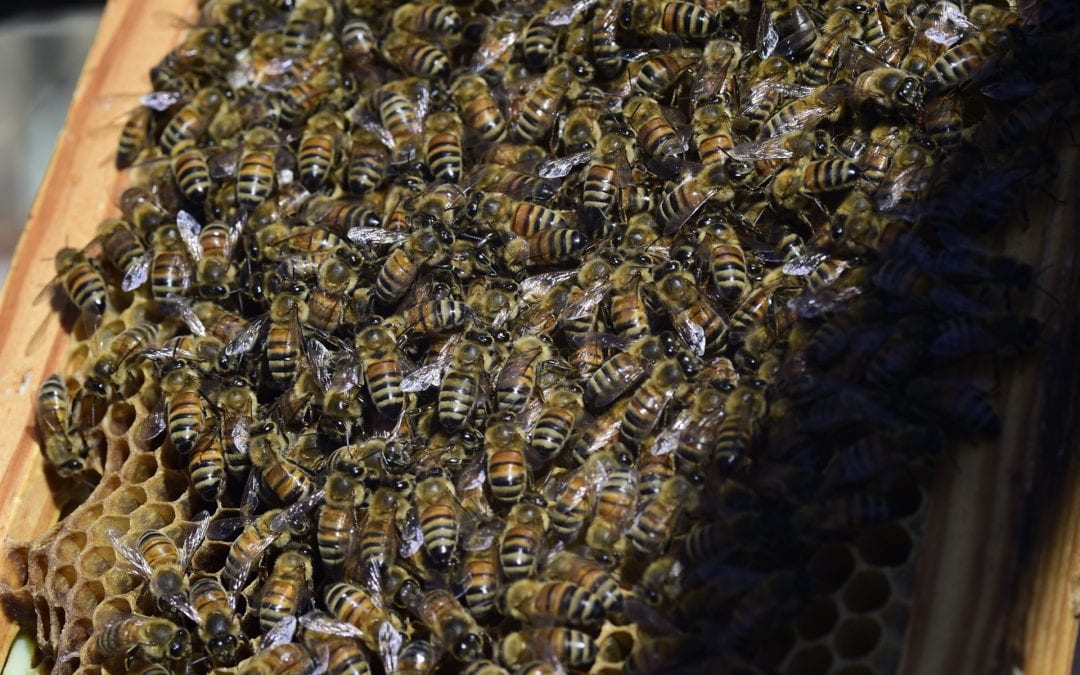


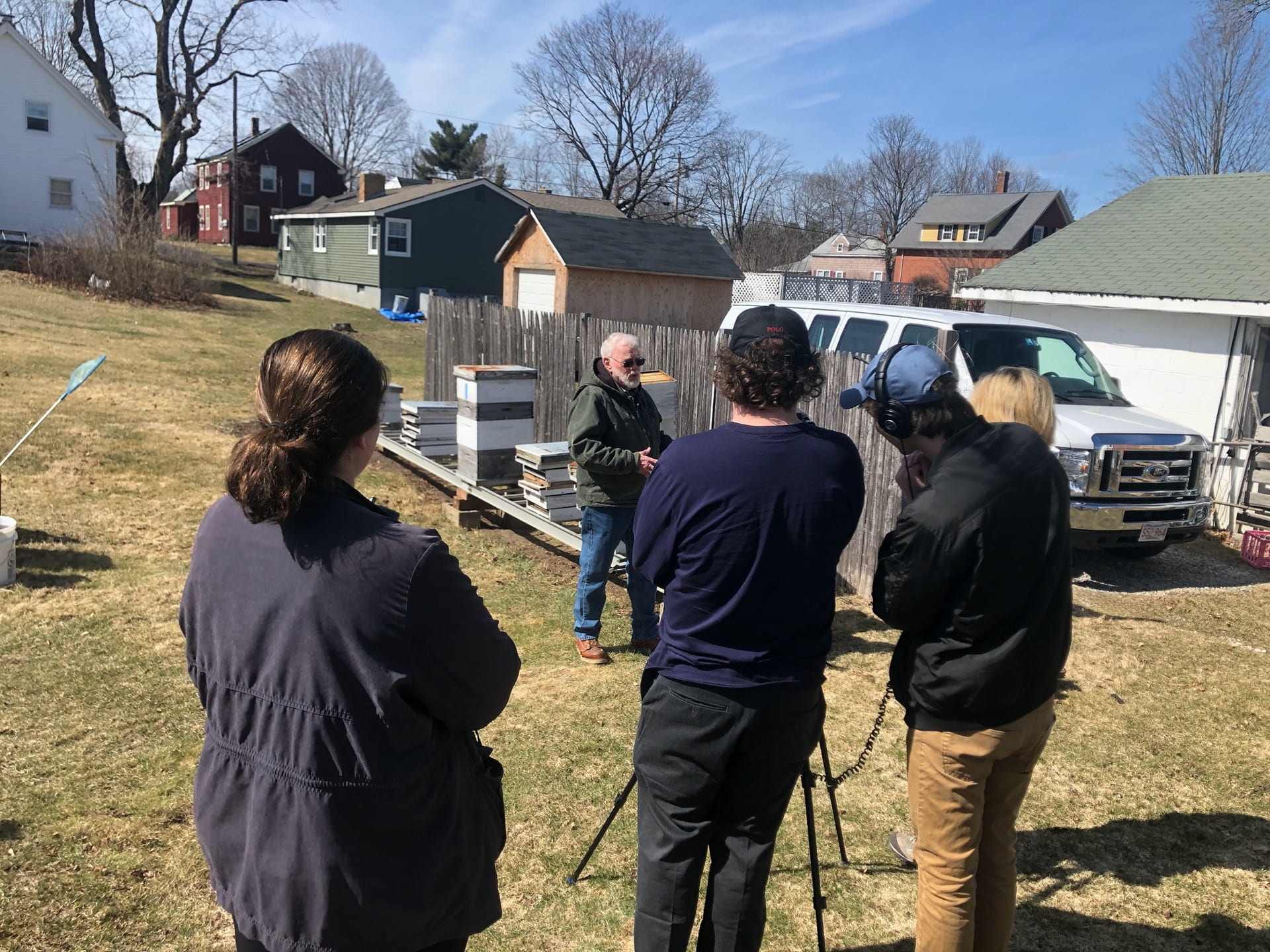
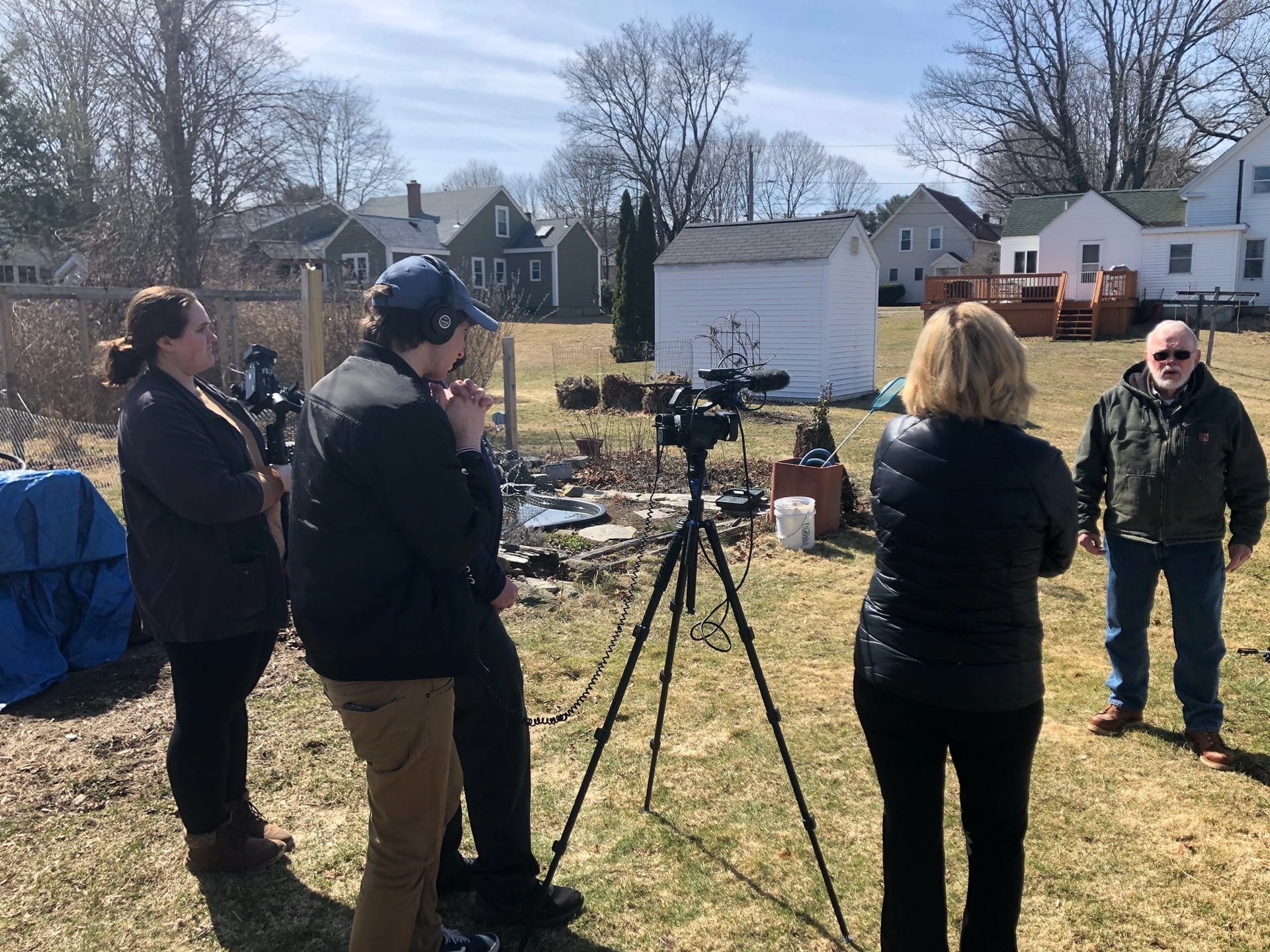
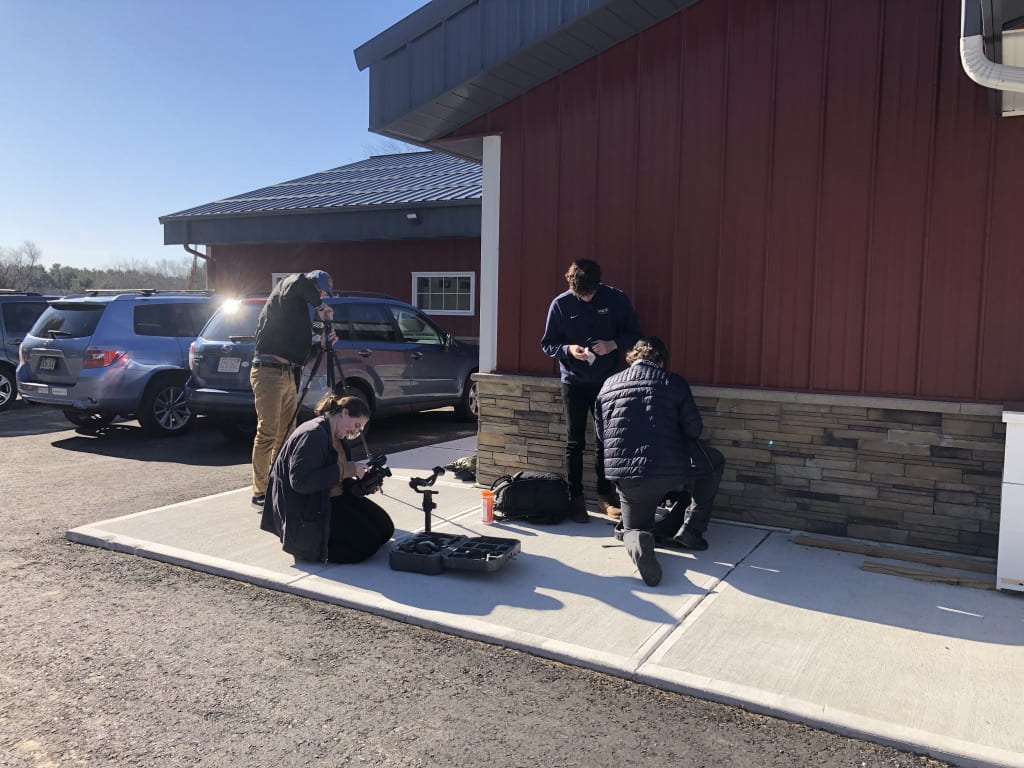


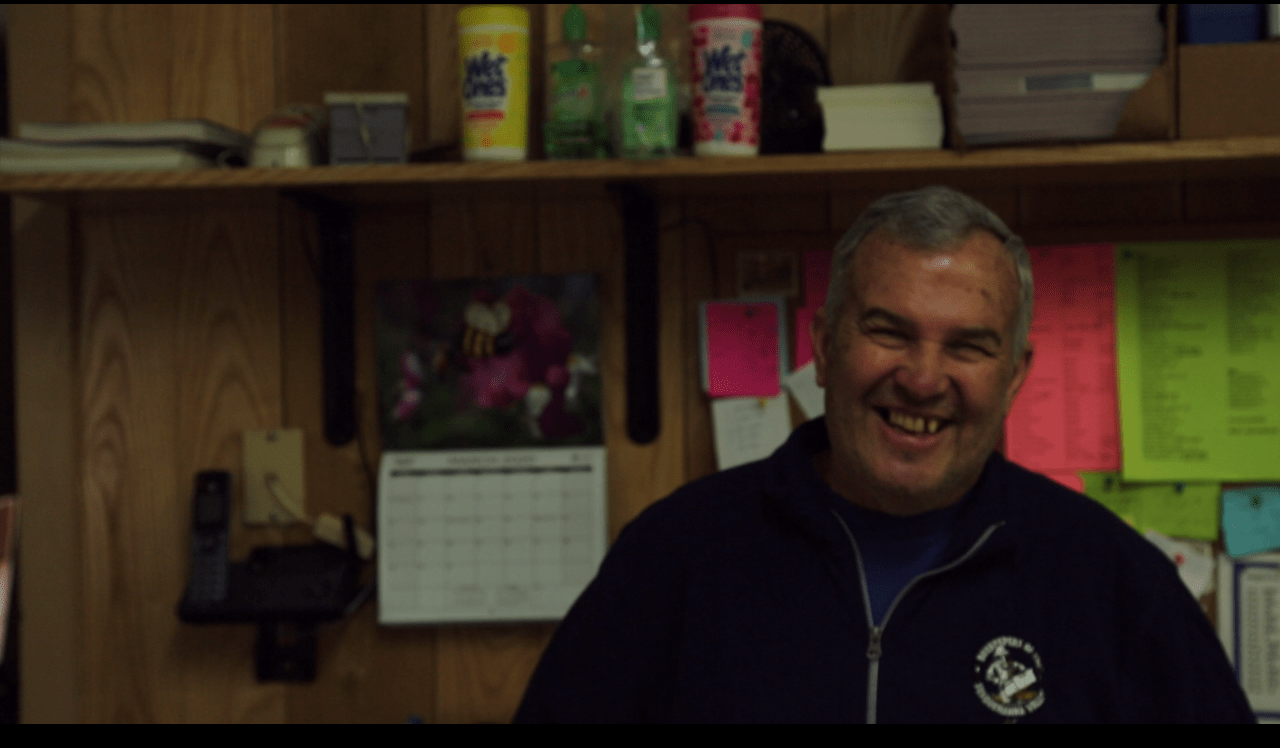
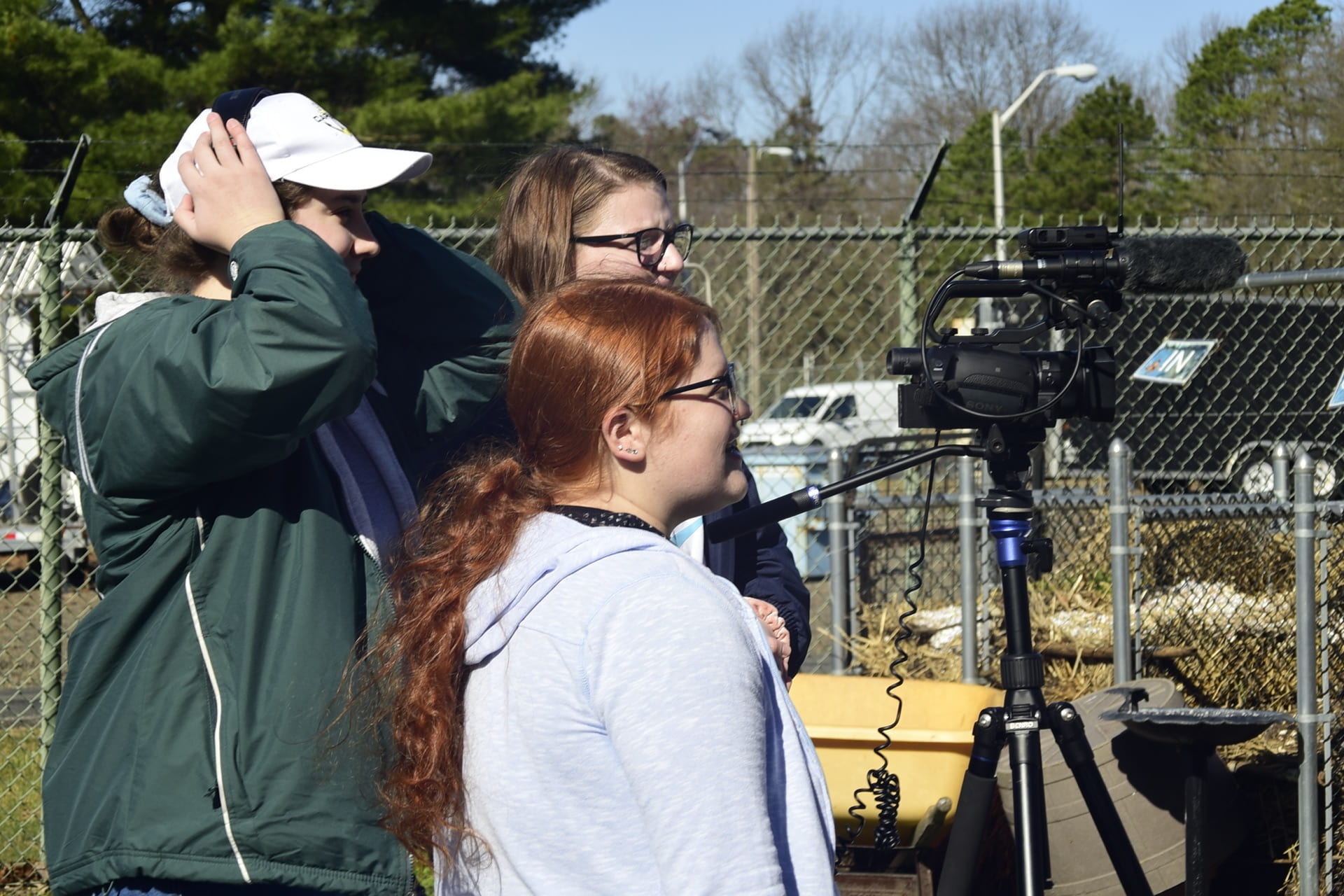
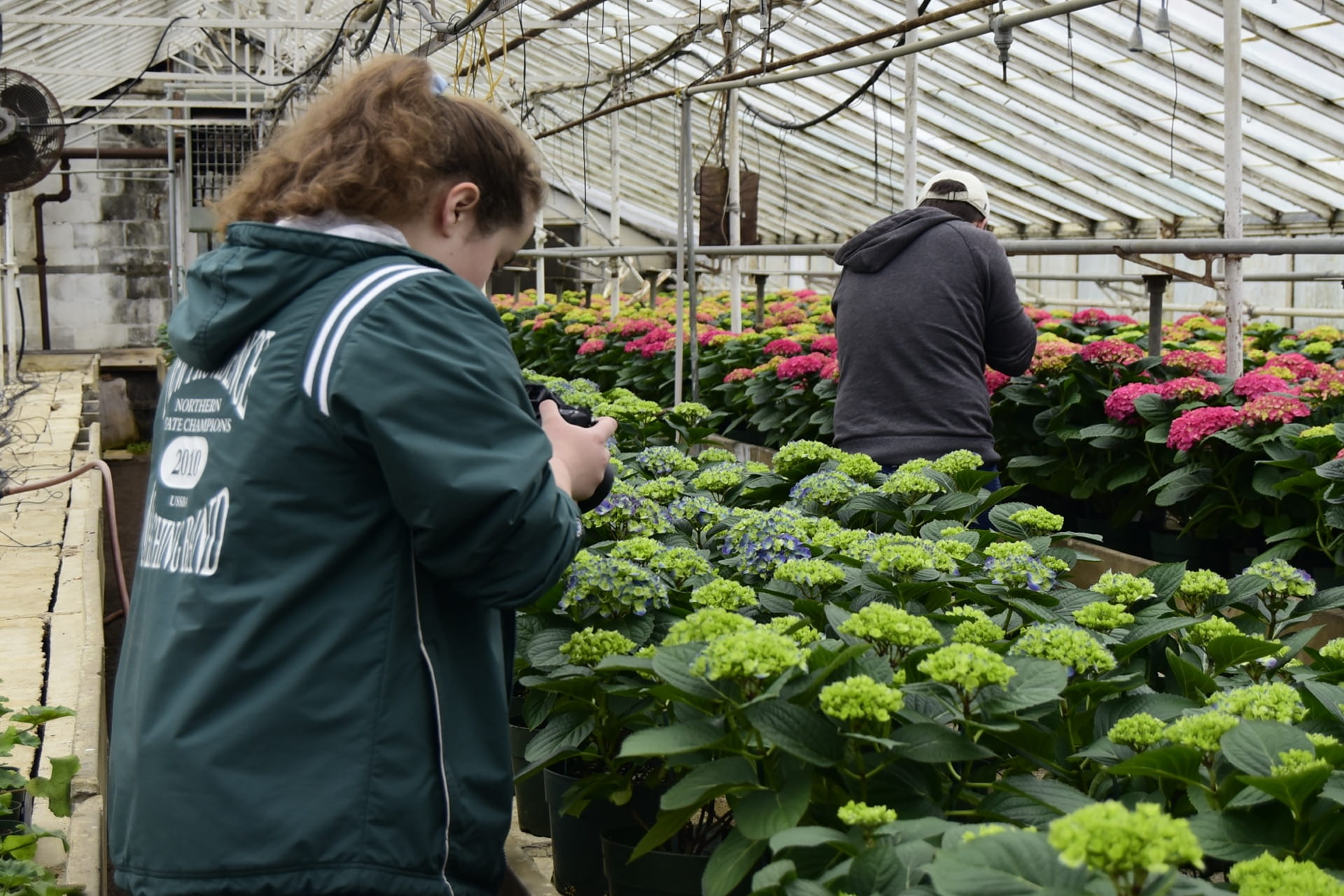
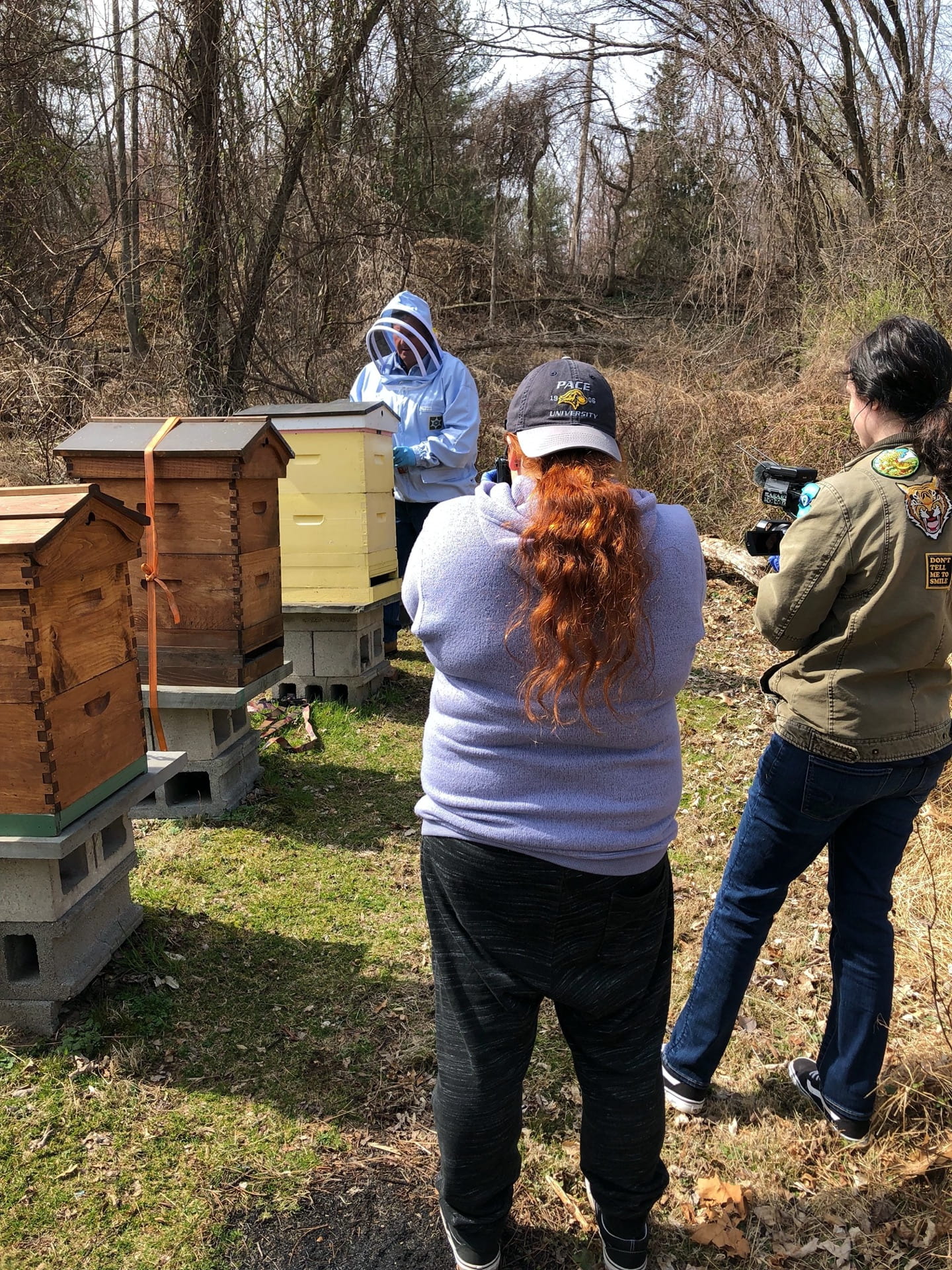
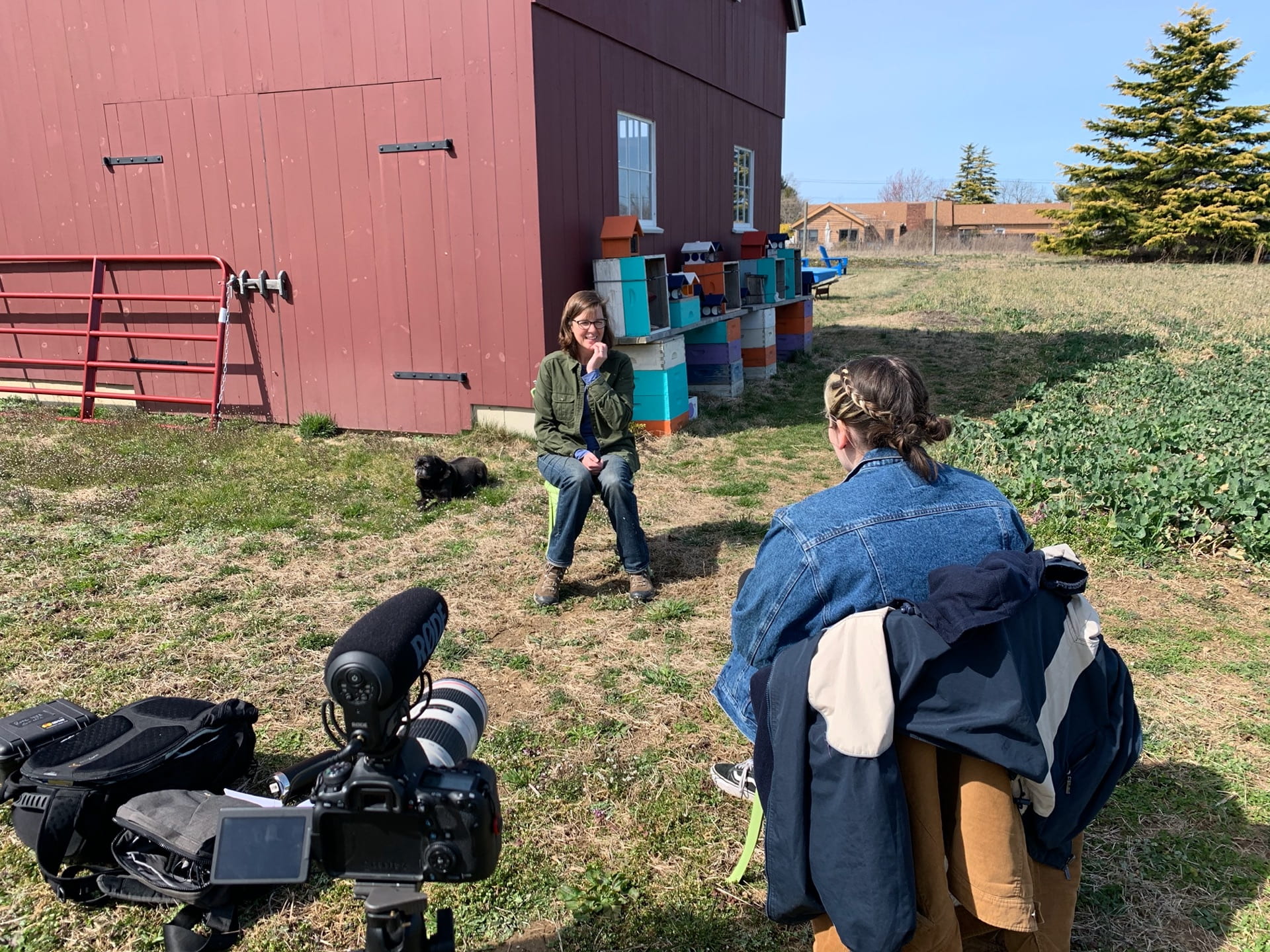
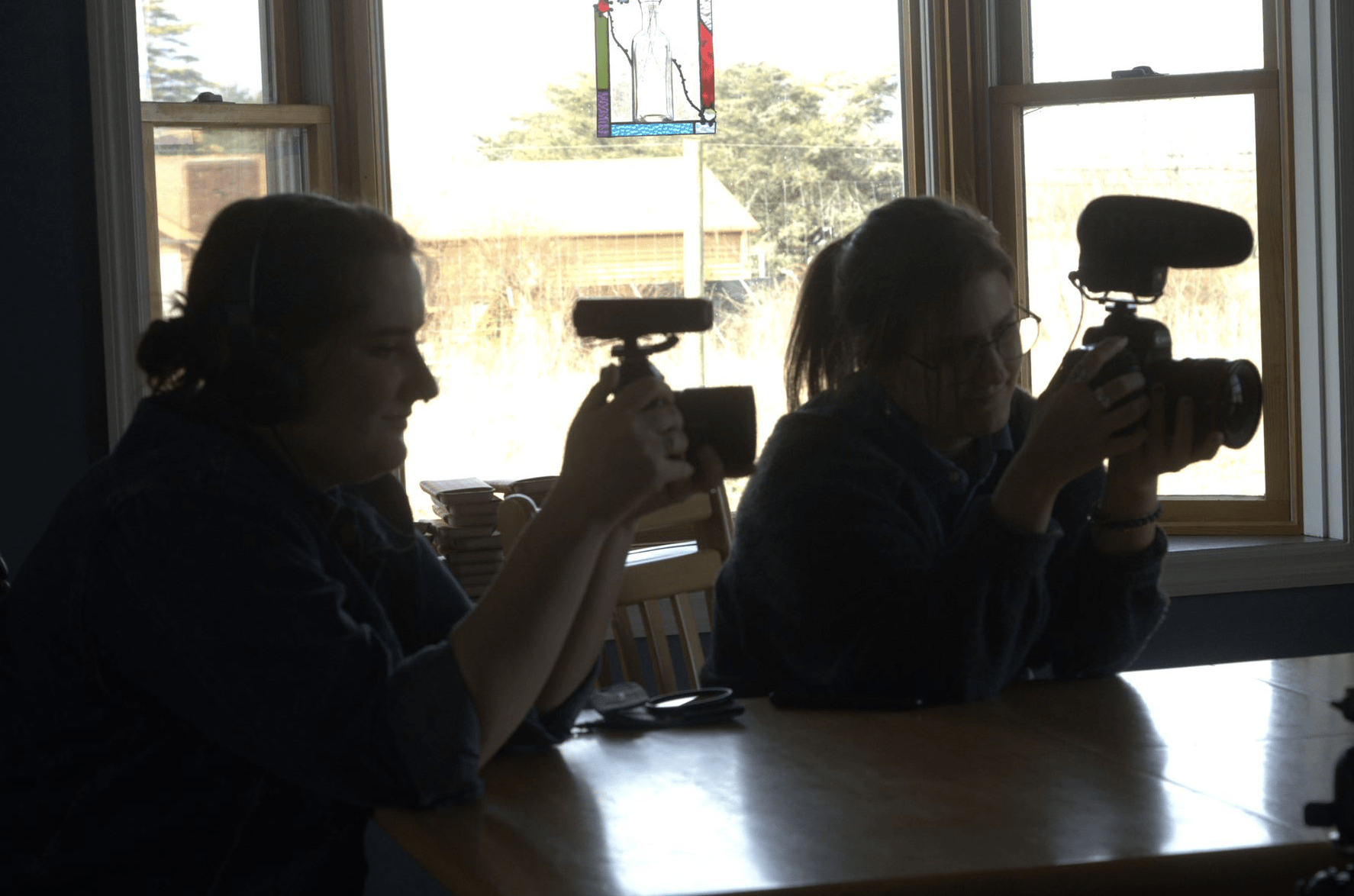
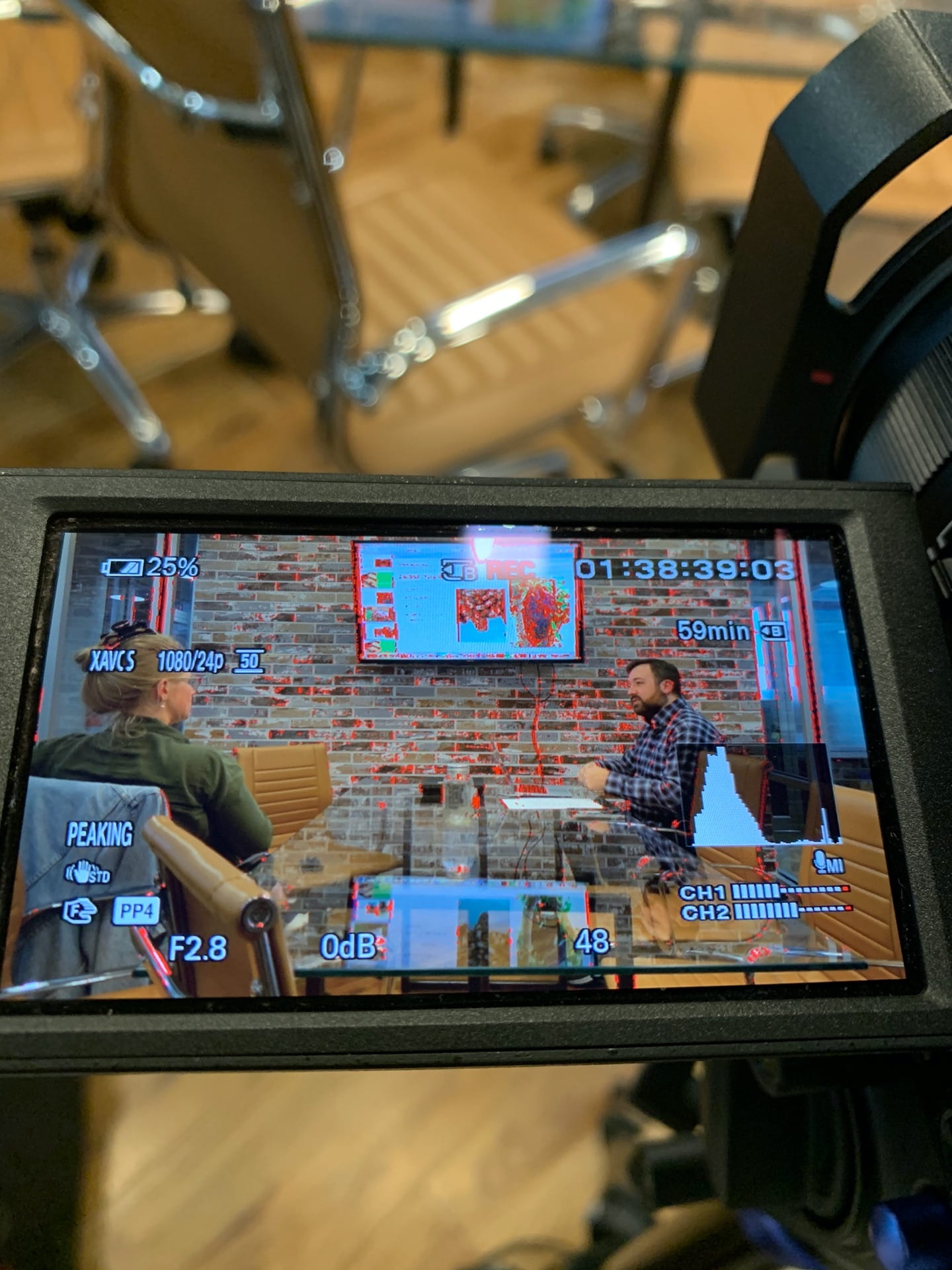
Great job ! Love this
What amazing work this group produced under such circumstances. Ite fascinating to watch and I look forward to seeing more in the future. Proud of all of you, especially my great-niece, Katie Doyle, who is part of this project.
I love this! So well done and Maria, great leadership under duress! For your students, what a way to excel in the midst of chaos…
It’s wonderful and inspiring to see how this year’s cohort of documentary students adapted to the jolt from the coronavirus, creating a distributed reporting effort and capturing great stories.
What a great story of determination and perseverance from Pace students! Very inspiring demonstration of teamwork and agility!